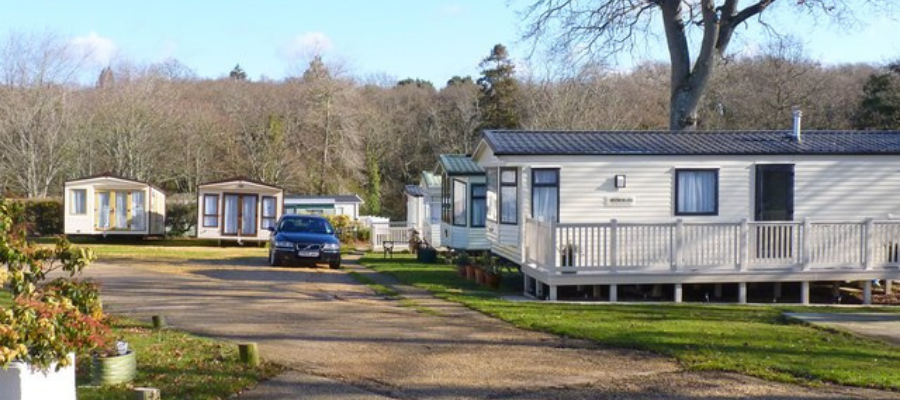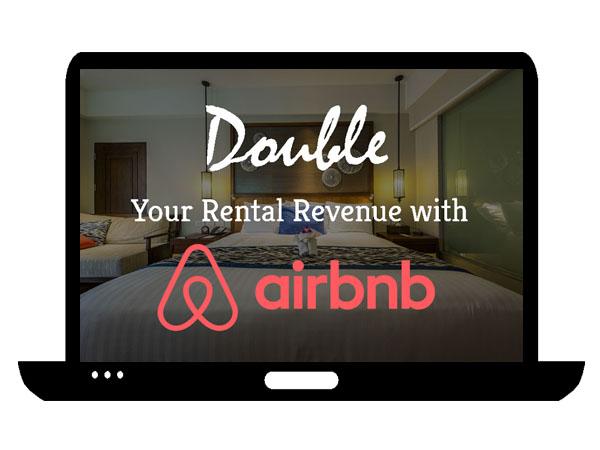The Big Picture On Creative Ways To Invest In Real Estate With Little To No Money.
-
- Real estate presents a great investment opportunity—and it doesn’t even have to drain your savings.
- Common creative financing strategies include house hacking, live-in flips, seller financing, land flipping, living in an RV, and more.
- Certain strategies fit particular situations, and you need to consider a few factors like investment goals and risk tolerance when choosing your strat.
Disclaimer
The information provided on this website is for general informational purposes only and should not be construed as legal, financial, or investment advice.
Always consult a licensed real estate consultant and/or financial advisor about your investment decisions.
Real estate investing involves risks; past performance does not indicate future results. We make no representations or warranties about the accuracy or reliability of the information provided.
Our articles may have affiliate links. If you click on an affiliate link, the affiliate may compensate our website at no cost to you. You can view our Privacy Policy here for more information.

Not many new real estate investors enter the game with unlimited funds. Most of us need to figure out how to invest in real estate with little money.
In fact, some people start investing in real estate with just $1,000.
But that limits your options, so how do you invest in real estate with no money, or with little money?
We have plenty of our own thoughts on the matter, but to broaden the ideas, we polled a series of expert real estate investors on their tactics to invest without much money.
Why Invest In Real Estate?
With the broad range of financial instruments available to people—stocks, bonds, derivatives, deposit accounts, etc.—you might be asking why bother with real estate specifically?
Well, that’s because real estate offers multiple benefits that don’t inherently come with other financial instruments. Here are some of them:
| Reason | Description |
|---|---|
| Passive Income | Rental properties can generate steady cash flow, providing a consistent income stream. |
| Appreciation | Over time, real estate values generally increase, offering potential for capital gain. |
| Tax Benefits | Real estate investors can take advantage of various tax deductions and benefits. |
| Leverage | Investors can purchase property with a relatively small initial investment. |
| Diversification | Adding real estate to an investment portfolio can reduce risk through diversification. |
| Inflation Hedge | Real estate often retains value and purchasing power even during inflation. |
Notice number 4 on the list: leverage. As indicated, real estate investments allows investors to get into the game with little to no money.
Doing that, of course, requires further discussion.
Ways To Invest In Real Estate With Little To No Money
There’s a big world of creative financing available to you when you get into real estate. So, let’s look at your options:
Live-in Flips
You know all about flipping houses. But have you ever considered moving into the property while you renovate and flip it?
Liz Hulz from The House Guys explains how she got into flipping: “Finding the seed money for your first project is the first and often the most challenging hurdle to overcome. A good solution is to make your first investment property your temporary home. This method works well for youngsters who have yet to get on the property ladder.
“Living in your investment property can cut down costs significantly. The money saved on rent and costs associated with renting a property can boost your renovation budget. Being on site cuts travel costs to and from the property. It also means you will be readily available to answer contractor questions avoiding delays based on communication.
“Having more time in the property, you can tackle easy DIY tasks yourself. Every small task you complete yourself reduces expenses and increases the return on your investment. Certainly, for the first investment you will find yourself counting every dime. After several investments, finances become easier and you have the confidence to take on more challenging projects that have a higher return on investment.
“My partner Andy and I bought our first house just after college, and it was so successful that we ended up starting our own real estate investment business! We love flipping houses and living our best lives together.”
As an added bonus, you can take out an owner-occupied mortgage, such as through Credible. That keeps both your interest rate and down payment lower than they would be with a hard money loan.
House Hacking
Deni and I are huge proponents of house hacking, and have each used several house hacking tactics over the years.
The classic house hacking technique involved buying a small multifamily property, moving into one unit, and renting out the others. You can use conforming mortgage loans for properties with up to four units, and again take advantage of lower down payments, lower interest rates, and lower minimum credit score requirements. Check out this duplex house hacking case study for details on exactly how it works.
But multifamily house hacking isn’t the only way to skin that cat. I’ve rented out rooms to housemates, covering the bulk of my mortgage payment. Deni has rented out storage space in her garage, and even went so far as to host a foreign exchange student for four years. The stipend covered most of her monthly payment.
You can also rent out an accessory dwelling unit (ADU) to cover some or all of your mortgage.
And if you don’t like the idea of sharing part of your property with long-term neighbors, no one says you have to sign a long-term lease agreement. You might prefer renting to short-term guests on Airbnb, and possibly earn higher returns to boot.
Real Estate Wholesaling
Also known as flipping contracts, wholesaling real estate involves putting a property under contract at a bargain price, then selling that contract to another investor — with a margin built in for you.
“For example, suppose you locate a $85,000 home and put it under contract for $55,000,” explains Corey Tyner, founder of Buy Yo Dirt. “You then sell the rights to that contract for $65,000 to another real estate investor. At the closing table, the seller receives $55,000, you receive a $10,000 finder’s fee, and the real estate investor gets a fantastic deal on a home.
“If everything goes right, you will never have to take title to any properties. You do, however, make a healthy profit.
“It won’t cost you much money; all you’ll need is a bit earnest money deposit to pay the seller, which might be as low as a few hundred dollars. Many first-time real estate investors begin by wholesaling to learn how to invest in real estate with little money. After a few wholesale deals, they have enough wealth to start retaining properties for themselves.”
Real estate wholesaling requires you to master two skills: scoring great real estate deals and building a network of real estate investors to sell to.
Borrow the Down Payment: Business Credit
Who says you have to come up with a down payment out of your own savings?
One way to invest in real estate with no money is to borrow the down payment from a business credit line or credit card. Because they’re not secured by collateral, they tend to come with relatively low credit limits and high interest rates. But you can combine many different credit lines and business credit cards to come up with the down payment, and then quickly pay it off with the flip profits or cash flow from the rental property.
In fact, many business credit cards come with an introductory 0% APR period ranging from 12-24 months. As long as you pay off the balance before then, it’s an interest-free loan.
Check out this video on how to open unsecured business credit lines as a real estate investor, using credit concierge service Fund&Grow. And while you’re at it, read up on other creative ways to come up with a down payment for a rental property.
(article continues below)
Borrow the Down Payment: Seller Financing
Business credit lines aren’t the only place you can borrow money for a down payment. Sometimes sellers offer owner financing as well.
That could mean just borrowing the down payment, as a second mortgage on top of an investment property loan from a portfolio lender like Kiavi or Visio. Or it could mean borrowing one loan from the seller to cover most or all of the purchase price.
My grandfather used to say “You don’t get what you deserve in life; you get what you negotiate.” You never know what sellers will agree to until you ask.
Just keep in mind you’ll probably have to explain how it works to them, as most aren’t familiar with seller financing. But once they understand and agree to the premise, you can negotiate the specifics of interest rate, balloon term, and any up-front fees on the private money loan.
You don’t necessarily have to put a down payment on a house, but you do need to get creative if you want to invest in real estate with little money.
 Mobile Homes
Mobile Homes
Real estate author and trainer Roseann Galvan puts it succinctly: “Although not the sexiest option, mobile home rentals are the easiest and least expensive way to start directly investing in real estate.
“While mobile homes may not appreciate as fast as traditional homes, they are usually the least expensive path to ownership. Mobile homes are also smaller and easier to rehabilitate and clean so a mobile home in need of some TLC is the perfect place to start.
“The increased interest in camping and glamping has made shabby chic a sought after commodity — a great opportunity for the mobile home investor in both rural and urban vacation friendly locations.
“Another option for the new investor is to purchase mobile homes on land that has the potential to be developed one day. You can make money on the mobile home rents while the land appreciates. After you have amassed some capital, you can either choose to add additional rental units in the form of accessory dwelling units or build a conventional single-family or multifamily residence that you will in turn rent out, generating further rental income for the long term.”
Short-Term Rental Arbitrage
Sure, you can go out and buy a property and then rent it through Airbnb. But that requires coming up with a down payment, paying for repairs and maintenance, and all the other expenses that come with rental properties.
Instead, consider vacation rental arbitrage. It works like this: you negotiate a bargain long-term lease agreement with a landlord, as the renter. You get written permission in the lease agreement to sublet, including on a short-term basis. You then furnish the unit and rent it on Airbnb and VRBO, earning a profit each month on the stronger cash flow it earns as a vacation rental.
Alternatively, you can advertise the property as a corporate rental for periods ranging from one to six months. Often, businesspeople and travel nurses need this sort of “extended stay” lease term, and pay a premium for furnished units.
This doesn’t work with every property, of course. You need to find units with strong year-round demand among vacation guests or business travelers, and then you need to negotiate a cheap lease with the property owner. Check out this free video explaining exactly how rental arbitrage works.
Land Flipping
Deni and I started investing in raw land a few years ago, and while it comes with its own quirks and risks, you can earn enormous returns with far fewer headaches than residential rental properties.
The business model is simple enough: buy land parcels for a fraction of their value, then resell them at full market value. Seth Williams, real estate broker at Reference Real Estate, puts it like this: “Land speculation is a straightforward and short-term investment in real estate. However, be aware of all the potential benefits your lands hold in a particular real estate market. Otherwise, it can be a risky investment, and you may be unable to sell for a profit.”
In other words, before buying a piece of land, you need to know why other buyers might want to buy it, and who those buyers are. That helps you market it effectively to the right people, so you don’t get stuck holding a piece of undeveloped land — and paying property taxes and potentially HOA fees on it indefinitely.
You can also offer hold owner financing notes when you sell properties, earning passive income from interest. Raw land isn’t regulated like residential real estate, so you don’t have to go through the lengthy foreclosure or eviction process to reclaim possession of it.
Plus, you can buy land plots for as little as $100. That ranks it among the smallest initial investments of any real estate investment strategy on this list. Closing costs are also much lower, since you don’t necessarily have to go through a title company.
(article continues below)
Real Estate Crowdfunding
I’ve had nothing but positive experiences with real estate crowdfunding investments.
They come in two broad categories: equity and debt. Equity crowdfunding means buying fractional ownership in properties, while debt crowdfunding involves funding loans secured by real property. The former offers better long-term appreciation, the latter generates better income yields in the short term.
A few of my favorite real estate equity crowdfunding investments include Fundrise and Streitwise. Fundrise owns large pools of properties, including apartment complexes, mixed-use buildings, single-family rental properties, and also some secured property loans as well. Streitwise owns several large commercial office buildings, and pays a reliable 7.3% dividend.
You can also buy fractional shares in single-family rental properties through Arrived Homes, with as little as $100 per property. Note that all of these equity crowdfunding platforms require a long-term commitment, typically five years.
Among real estate debt crowdfunding investments, I particularly like Groundfloor and Concreit. They work differently — Groundfloor lets you pick and choose individual loans to fund, while Concreit just has one pooled fund that owns many loans secured by real estate. You can earn 8-15% returns on Groundfloor loans, and they generally repay within 3-12 months.
Concreit pays around 5.5% – 6% dividend, but here’s the kicker: you can withdraw your money at any time, with no penalty against your principal.
If you’ve ever wondered where hard money lenders get the capital for lending out, well, many raise it from people like you through crowdfunding!
You can compare other real estate crowdfunding investments on our comparison chart and overview.
REITs
While real estate crowdfunding investments are privately owned, and you buy and sell directly with the company offering them, real estate investment trusts (REITs) trade on public stock exchanges.
“Rather than buying real assets, investors purchase stock in a firm that develops or manages them, explains Matt Lee, founder of Innovative Building Solutions. “In this regard, REIT investing is comparable to stock investing; however, REITs offer a wonderful way to earn passive streams of income from real estate investing without buying property yourself.”
On the plus side, REITs tend to pay high dividend yields, and of course come with instant liquidity, as you can buy and sell shares instantly through your regular brokerage account. But those advantages also come with corresponding downsides. Because REITs must pay out at least 90% of annual profits to investors in the form of dividends, it’s difficult for them to expand their real estate portfolios to boost their share price. And because they trade on public stock exchanges they share an uncomfortably close correlation with stocks.
Different REITs own different types of physical properties. Some own apartment buildings, others own office buildings or industrial parks, or fund real estate developers building new real estate projects. Other REITs own debt secured by real estate property, funding private loans or more traditional lenders. You can buy mutual funds and exchange-traded funds (ETFs) that own a wide range of REITs as well, for broader exposure.
Since you can buy shares in REITs for under $10, they offer one of the lowest minimum investments on this list.
Private Notes
Real estate crowdfunding platforms aren’t the only way to invest in debt secured by real estate.
“A promissory note is the legal document that a borrower signs to formalize and legally bind the loan,” explains Corey Tyner. “As a result, private notes are private loans between two parties.
“Instead of paying excessive interest and fees to banks, as real estate investors acquire expertise, they frequently turn to friends and family members to obtain money to buy new properties. In an ideal environment, everyone wins: the real estate investor gets to negotiate their loan terms, and the private noteholders get a consistent, high return on their investment.
“Of course, things don’t always go as planned. Novice investors lose money from time to time, making for unpleasant conversations with friends and family.
“Before you throw money at every real estate investor you know, look at their past projects. Check whether they have a proven track record of making a profit because foreclosing is a costly and time-consuming procedure, even if you acquire a claim on their home. Doing your homework ahead of time will help you avoid this.”
Considerations When Choosing Your Strategy
Just because you have a list of options you can use to finance your real estate investments creatively doesn’t mean you have to try them all. You need to consider the following before deciding on your course:
- Investment Goals: Do you want fast income, or are you in it for the long run? Depending on your answer, some financing options are better than others.
- Risk Tolerance: Some financing options are riskier than others. These are your hard money loans, balloon mortgages, seller financing with steep interests and unfavorable terms, and Adjustable-Rate Mortgages (ARMs).
- Market Feasibility: The right preparation and research can significantly affect your end result. You need to do in-depth studies on your chosen location and the factors that affect real estate investments, such as employment rates, income levels, and renter preference.
- Taxes And Fees Per Location: Always familiarize yourself with the fees you’re on the hook for when operating within a certain county, city, or state. This way, you don’t get a surprise visit from the tax man or a hefty fine you didn’t see coming.
Final Thoughts
As you research how to invest in real estate with no money, choose one strategy and dive deep into learning it. Master one real estate investing strategy before you try to expand into others.
It usually takes a few deals in one real estate investing niche before you consistently start earning money in it. I lost six figures when I first started investing, because I thought I could figure it all out on my own. In retrospect, I wish I’d had the humility to take on a mentor or senior real estate partner.♦
How do you plan on investing in real estate with no money or little money? What types of real estate assets are you leaning towards?




























My partner and I started investing in a small rural community. We move in to a humble home and started house hacking. We find it easier to start investing in rural homes!
Glad to hear you’ve had good success with rural real estate investing with little money!
I started investing $1,000 in crowdfunding and planning to accumulate 2.4% increase every month for 4 years. By then, I will enjoy my dividends! Well, I only have a small business but I am going to venture more investment in the process.
Consistency is the key Stefanie!
Starting a small investment is a giant step for paying the best interest! Great tips and tricks!
Thanks Zefania!
Thanks for the tips and tricks! I’m an aspiring realtor in New Mexico.
Keep us posted on your progress SJ!
I never thought a $1k fund is enough for real estate investing. Easy to follow and informative article!
Glad to hear it opened up new possibilities for you Jocelyn!
This goes to show that even the lower middle class can start their real estate journey. Love it.
Thanks Sally, and I agree!